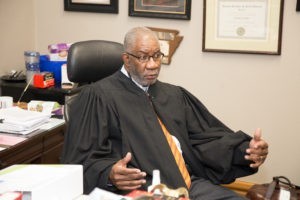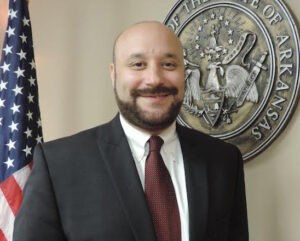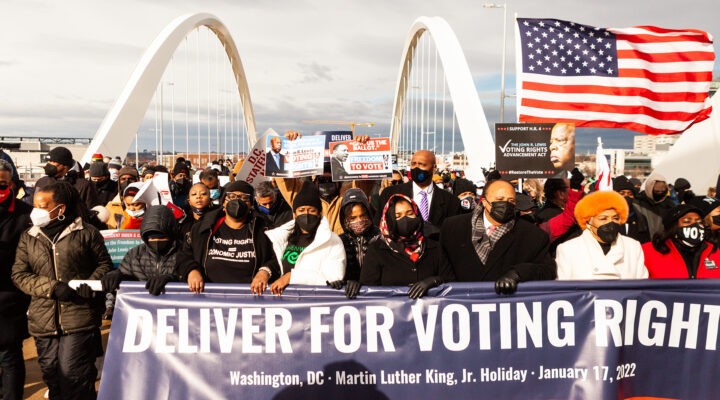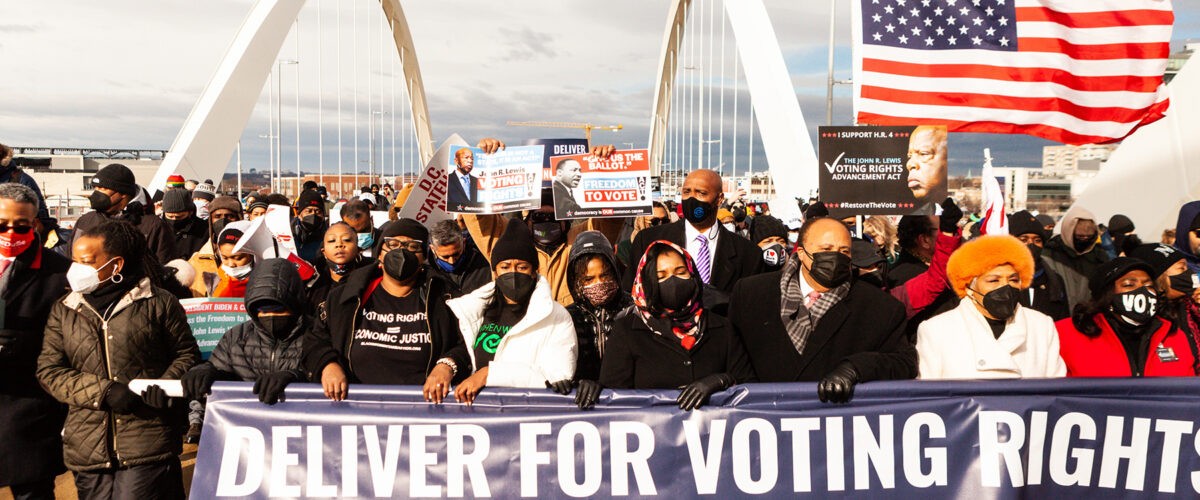Arkansas now finds itself at the center of the nation’s debate over what’s “election integrity” and what’s “voter suppression.” And a Baptist judge is one of the key players.
Arkansas Circuit Judge Wendell Griffen (who also is a BNG columnist) ruled March 18 that four new laws passed by the Arkansas Legislature to make voting more difficult place an unconstitutional burden on voting access.
Griffen, who also serves as pastor of New Millennium Baptist Church in Little Rock, sided with plaintiffs in the case, which included the League of Women Voters.

Judge Wendell Griffen
As reported by Max Brantley in the Arkansas Times: “The Republican Legislature argued that the laws were voting integrity measures but provided no proof of their need. Even one of Attorney General Leslie Rutledge’s defense witnesses, from the Republican-controlled state Board of Election Commissioners, said he knew of no significant voter fraud.”
Although the final written ruling has not yet been produced, Griffen announced from the bench that based upon “a preponderance of the evidence,” the four new laws “are based entirely on conjecture and speculation. Conjecture and speculation, however plausible, cannot be permitted to supply the place of proof.”
The state of Arkansas is expected to appeal the circuit court ruling.
These Arkansas laws are part of a Republican effort to enact “election integrity” laws in states nationwide. The project was sparked by Donald Trump’s lie that the 2020 presidential election was stolen from him by voter fraud. Faced with needing to win future elections in a nation increasingly more ethnically diverse, Republicans have sought to narrow access to the ballot, which critics say primarily excludes the votes of minorities and the poor.
In its first-in-the-nation primaries, Texas proved the effect of such new laws. An analysis by the Associated Press found that Texas — where new voting restrictions also were enacted — threw out mail-in votes “at an abnormally high rate.”
An analysis by the Associated Press found that Texas — where new voting restrictions also were enacted — threw out mail-in votes “at an abnormally high rate.”
The AP report explained: “Republicans promised new layers of voting rules would make it ‘easier to vote and harder to cheat.’ But the final numbers recorded by AP lay bare the glaring gulf between that objective and the obstacles, frustration and tens of thousands of uncounted votes resulting from tighter restrictions and rushed implementation.”
Previously, it would have been unusual for 2% of ballots to be rejected in an election, the AP explained, but during the Texas primaries, about 13% of mail ballots “were discarded and uncounted across 187 counties.”
The Arkansas laws Judge Griffen ruled unacceptable included a strenuous signature match requirement even a Republican lawmaker called “rife with errors”; creating the earliest mail-in ballot deadline in the nation; requiring some voters to appear in person at a county clerk’s office to prove their identity; and prohibiting “line warming,” the practice of handing out water and snacks to voters waiting hours in long lines to vote.
Just three weeks before Judge Griffen’s ruling against the new voting restrictions in Arkansas, a federal judge appointed by Trump dismissed a case over new maps for districts in the Arkansas Legislature.

Judge Lee Rudofsky
The NAACP and American Civil Liberties Union had argued the maps diluted the power of Black voters. But Judge Lee Rudofsky said he found no way for the challengers to proceed in their case.
“Only the attorney general of the United States can bring a case like this one,” he wrote.
A spokesperson for the ACLU said Rudofsky’s ruling is “so radical that there was no choice but to appeal it.” Sophia Lin Lakin, deputy director of the ACLU’s Voting Rights Project added: “Private individuals have brought cases under Section 2 of the Voting Rights Act to protect their right to vote for generations.”
This question is a live one since the U.S. Supreme Court gutted a key provision in the Voting Rights Act of 1965 eight years ago. With a new conservative supermajority on the high court, even some court justices are hoping for a chance to narrow the scope of who may challenge voting laws.
“The Arkansas case is the latest in a string of defeats for civil rights advocates, as conservative-leaning judges slowly dismantle key provisions of the law,” Carrie Johnson reported for NPR.
Democrats in the U.S. Congress have drafted a major voting rights protection bill that has passed the House but remains stalled in the Senate due to opposition by two swing-state Democratic senators.
Related articles:
Religious leaders call on Senate to pass voting rights bill — to no avail
Voting rights and the people who died for them: Jonathan Daniels et al. | Opinion by Bill Leonard
Voting rights and the ninth commandment | Analysis by Stephen Reeves
Poor People’s Campaign marches on Texas Capitol with demands for voting rights


